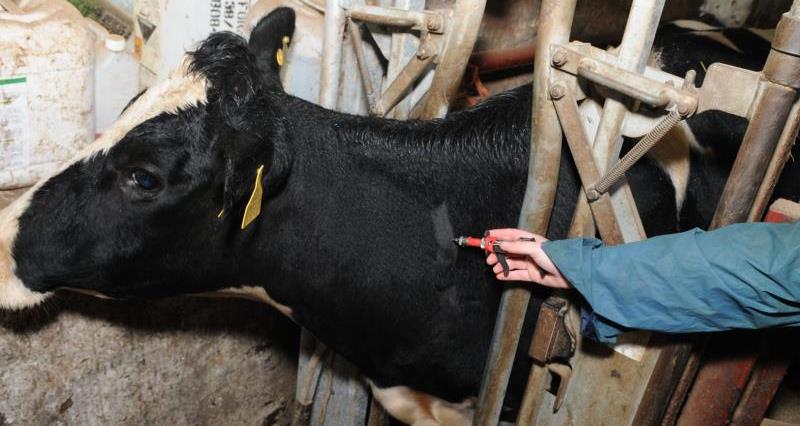As local farmers gather for the annual Pembrokeshire County Show, the continued frustration of the impact of Bovine TB on the farming industry remains a major talking point.
The local situation in Pembrokeshire is particularly alarming with 3,387 cattle slaughtered in the county due to Bovine TB in the 12 month period up to the end of April 2018 – this is a staggering 24% increase compared to the same 12 month period last year.
Speaking at the show, local dairy farmer and Pembrokeshire NFU Cymru County Chairman, Jeff Evans said: “I fully appreciate that when looking at a disease as complex as Bovine TB, one should consider short term statistical changes in the context of long term trends. However this scale of loss is hugely damaging and unsustainable for the industry in Pembrokeshire.”
Mr Evans continued: “Far too many farming families in this area continue to struggle under the enormous emotional and financial strain caused by Bovine TB. Cattle farmers here in Pembrokeshire, and throughout the rest of Wales, are continuing to play their part to help control and eradicate the disease by adhering to stringent cattle movement and testing controls. However these latest figures clearly illustrate that the measures currently in place to eradicate this disease are not working.”
Mr Evans added: “The Welsh Government introduced a regionalised approach to tackling the disease in Wales in October 2017. This includes enhanced measures for chronic breakdown herds where individual action plans have been drawn up with disease control measures specifically aimed at clearing up infection in cattle. In these chronic breakdown herds, Welsh Government made a commitment that where there is evidence of infection in the local badger population, a range of options to reduce the risk of disease spread will be considered, including cage-trapping, testing and where necessary humanely killing infected badgers.
“It is a source of real frustration that since the introduction of these individual action plans for chronic breakdown herds, Welsh Government in 2017 only managed to issue licences on three farms across the whole of Wales, with only five badgers having been removed. This is in stark contrast to the 10,119 cattle that have been slaughtered in Wales due to Bovine TB in the last 12 months. This is when we know, from the Badger Found Dead Survey, that in some parts of Wales one in five badgers are suffering from this disease. The continual testing and slaughter of infected cattle alone will not eradicate the disease in herds where re-infection occurs from badgers, this makes control very difficult and eradication impossible.”
Mr Evans continued: “We have always said that we must use every option available to us, this includes; cattle testing, cattle controls, improving biosecurity, encouraging farmers to make informed purchasing decisions and strengthening the role that local vets play in tackling this horrendous disease. Experience from many other countries has shown that any comprehensive TB eradication strategy must also actively remove infection from diseased wildlife across high incidence areas.”
Mr Evans concluded: “I cannot stress enough the importance of Welsh Government moving forward with a truly comprehensive approach to TB eradication, we cannot be here again in twelve months’ time talking about this scale of loss of productive cattle from the county.”
